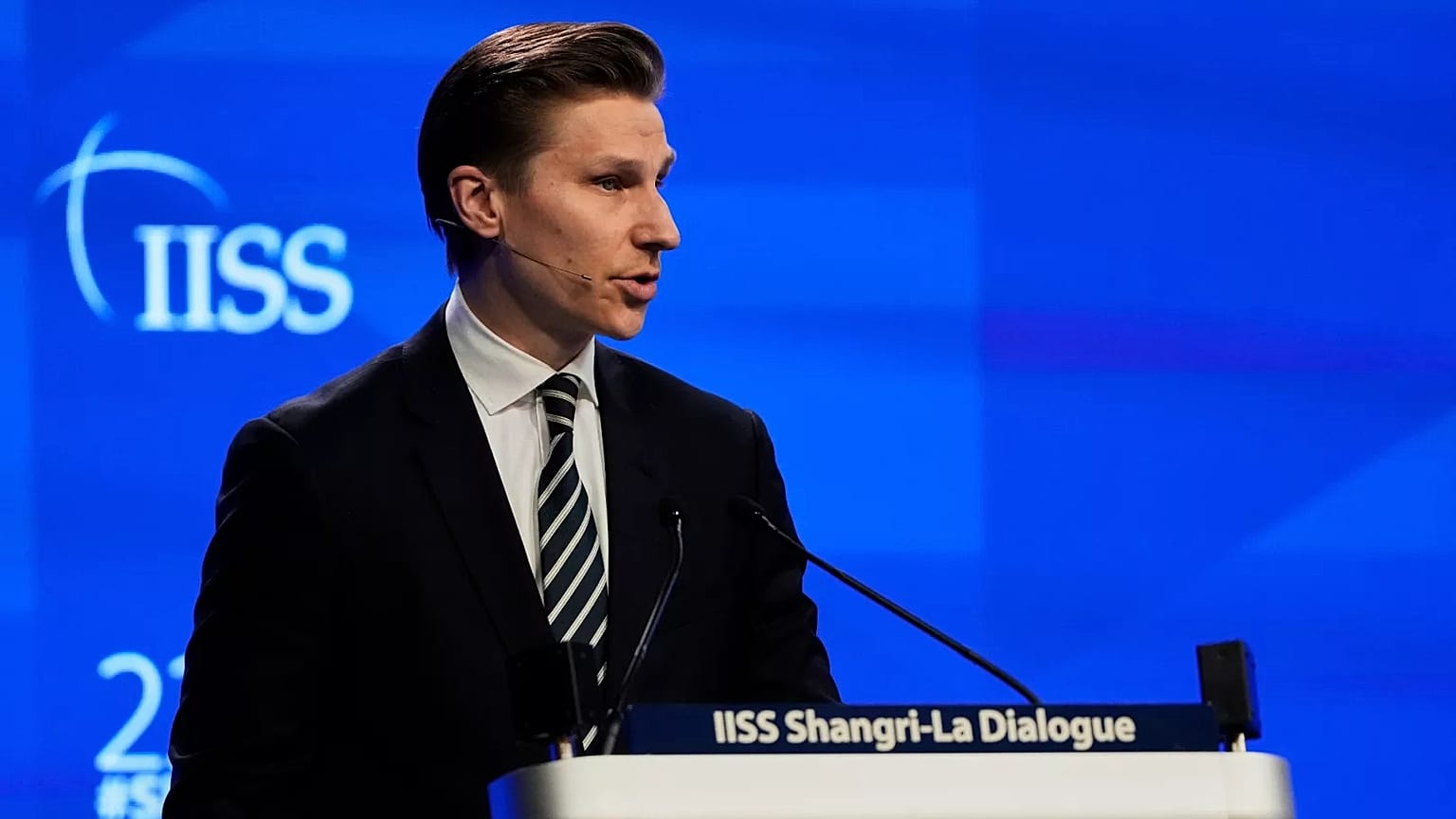Top Stories
Finland Urges NATO Allies to Accelerate Defence Spending NOW

UPDATE: Finland’s Defence Minister Antti Häkämmen has issued an urgent call for NATO allies to accelerate investments in defence systems amid alarming incursions into NATO airspace attributed to Russia. Häkämmen warns that Europe is in a critical race against time to enhance its defence capabilities and establish a so-called “drone wall” to combat increasing airspace violations.
Recent reports indicate that drones have breached the airspace of countries including Poland and Denmark, raising significant security concerns. Häkämmen stated, “When they [Russia] were running out of missiles, they started to produce lots of drones, which is why this has changed the threat picture.” He emphasized the immediate dangers posed by these drones, especially if they are shot down in populated areas, stating, “It’s hugely challenging to drop a drone in a civil area without collateral damage.”
The urgency of the situation cannot be overstated. Häkämmen highlighted that Russia exploits perceived weaknesses, saying, “If they believe the West is a bit weak…they think they have an opportunity to take some more land again.” This sentiment echoes tensions from the past, referencing Russia’s actions in 2014 and 2022 when it annexed Crimea and launched a full-scale invasion of Ukraine.
To counter these threats, Europe must ramp up its defence investments, Häkämmen insisted. “There must be a sense of urgency,” he declared, as the proposed drone wall aims to integrate detection and strike systems across multiple countries, including Finland, Estonia, Latvia, Lithuania, and Poland.
The drone wall is envisioned as a “system of systems,” according to Sven Kruck, co-CEO of the German drone manufacturer Quantum Systems, who stated, “At its core, the project is a network of sensors and defence systems aimed at securing NATO’s eastern flank.” However, disagreements remain over the timeline for operational readiness, with Evika Siliņa, Latvia’s Prime Minister, suggesting it could be ready in “one year, year and a half,” while German Defence Minister Boris Pistorius estimated it would take “three to four years.”
As NATO grapples with these challenges, Häkämmen insists the alliance must implement a commitment to increase defence spending to 5% of GDP immediately. All 32 NATO allies agreed in July at the NATO summit in The Hague to boost defence spending from 2% to 5%, with 3.5% allocated for core defence and 1.5% for security-related spending. “You have to start immediately,” he warned, stressing that NATO’s collective defence gaps must be filled swiftly.
The shift in U.S. defence priorities adds another layer of urgency. Häkämmen pointed out that the Trump administration had warned Europe about relying on American security guarantees. With the U.S. now focusing on the Indo-Pacific and halting military aid packages to Ukraine, European nations must take decisive action to bolster their own security.
This urgent call for action comes as Europe faces a complex web of threats, including hybrid warfare tactics from Russia that encompass misinformation and cyberattacks. The implications of these developments are profound, as European nations navigate the pressing need for enhanced defence capabilities.
As Häkämmen succinctly put it, “The Europeans must pay their fair share and buy the equipment to fill the U.S. gaps.” The time for action is NOW, and the stakes have never been higher for NATO and its allies.
-

 Top Stories4 weeks ago
Top Stories4 weeks agoTributes Surge for 9-Year-Old Leon Briody After Cancer Battle
-

 Entertainment2 months ago
Entertainment2 months agoAimee Osbourne Joins Family for Emotional Tribute to Ozzy
-

 Politics2 months ago
Politics2 months agoDanny Healy-Rae Considers Complaint After Altercation with Garda
-

 Top Stories2 months ago
Top Stories2 months agoIreland Enjoys Summer Heat as Hurricane Erin Approaches Atlantic
-

 World3 months ago
World3 months agoHawaii Commemorates 80 Years Since Hiroshima Bombing with Ceremony
-

 Top Stories3 months ago
Top Stories3 months agoFianna Fáil TDs Urgently Consider Maire Geoghegan-Quinn for Presidency
-

 World3 months ago
World3 months agoGaza Aid Distribution Tragedy: 20 Killed Amid Ongoing Violence
-

 World3 months ago
World3 months agoCouple Convicted of Murdering Two-Year-Old Grandson in Wales
-

 Top Stories4 weeks ago
Top Stories4 weeks agoNewcastle West Woman Patricia Foley Found Safe After Urgent Search
-

 Top Stories2 months ago
Top Stories2 months agoHike Donegal’s Errigal Mountain NOW for Unforgettable Summer Views
-

 Top Stories2 months ago
Top Stories2 months agoClimbing Errigal: A Must-Do Summer Adventure in Donegal
-

 World3 months ago
World3 months agoAristocrat Constance Marten and Partner Convicted of Infant Murder









